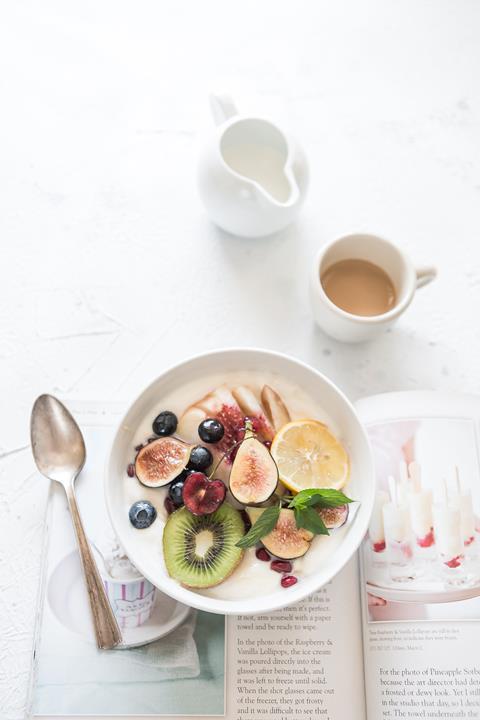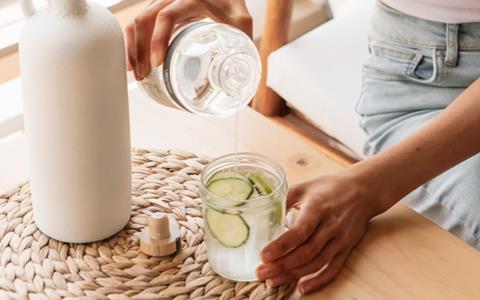Nutritionist Clare Backhouse helps us learn to care for our bodies in a new way

In the last issue, I introduced this nutrition series by arguing that our health attitudes are typically guided by the strict, almost ‘religious’ rules and expectations that are often found in the wellness media. My purpose, over the next few months, is to transform our approach to health by reimagining it as a relational experience of loving care. That’s the powerful shift: from guilt and rules, to loving nurture.
Love languages
A great way to make this shift into love, is to gain a deeper understanding of how our bodies really work. After all, when we know how someone ticks, it’s easier to love them well.
The premise of the Five Love Languages is that we each have one or two main ways that we experience love, whether it’s through receiving presents, words of affirmation, acts of service, physical touch or the gift of time.
If I am not a massive ‘presents person’, I might not think to buy gifts for my friend. But when I discover that she feels most loved when she receives presents, then I can set about buying or making them, knowing it’s likely to really have an impact on her.
What if we saw caring for our body’s needs as a ‘love language’ rather than ‘a sensible task I probably ought to do’?
I think we might find our health a little bit more relaxing and a lot more intuitive.
‘Happy’ chemicals
One of our body’s top love languages is practical care for the gastrointestinal or digestive tract (gut).
When we love our guts, almost everything else works better. As you may already know, the gut is where the neurotransmitter serotonin is mostly made, and serotonin is one of the crucial ‘happy’ chemicals in the body that helps to produce feelings of wellbeing and joy.
The gut is also where important mood-balancing nutrients like vitamins B3 and B6 are absorbed, so anything that impedes this absorption – such as food intolerances, constipation or chronic inflammation – may also affect our sense of wellbeing.
Clearing out your hormones
For women, the gut is very important as a site of hormone clearance. For example, ‘old’ oestrogen needs to be removed from the body and, while the liver does the lion’s share of this detoxification process, eventually it needs to pass out through the colon. If anything impedes its exit – chronic constipation for example – the body can reabsorb that old oestrogen, which may topple the delicate balance of female hormones.
Any resulting ‘oestrogen dominance’ may trigger or perpetuate pre-menstrual syndrome (PMS) at the end of our cycle, causing symptoms like bloating, headaches, breast tenderness and irritable mood.
So, to summarise, here are three (out of many) great reasons why our bodies love to receive care for the gut:
1. it helps support ‘happy’ neurotransmitters
2. it helps absorb mood-calming nutrients
3. it supports hormone-balancing detoxification processes.
Basic care
It is so easy to love our guts well. And because our digestive tract is foundational to all of our health, I will be referring to it throughout this series.
But let’s start with the basics because, while the foundations of gut health may appear shatteringly simple, their impact can be immense.

Hydration
If we don’t drink enough water, we may not have daily bowel movements. And in case you’re wondering, between one and three bowel movements per day is considered healthy, to ensure good detoxification and reduce the danger of inflammation.
For sufficient hydration, I recommend my clients drink at least two litres of water per day.
If cold weather stops you from drinking water, try the following comforting options: non-caffeinated herbal tea, such as peppermint, rooibos, ginger or liquorice, or just add a squeeze of lemon to warmed water.
Fibre and fat
You were probably expecting a mention of fibre here – and yes, fibre is crucial. But you might not have expected me to talk about fat!
After a period of fearing fat in the 1980s and 90s, recent scientific research is helping us appreciate it again. This is a good thing, because fibre works with fat to help remove toxins (including old hormones) via the colon.
Healthy fats can be eaten as condiments, or used in cooking, in the form of butter, olive oil and coconut oil. Good fat is also found in foods such as oily fish, nuts and avocados.
Fibre is best acquired from a diverse range of vegetables, because they can contain lots of other beneficial nutrients such as vitamins C and K. But fibre is also found in wholegrains like well-cooked brown rice, oats and in seeds.
Promoting health
So ensuring we are kept well hydrated, and taking in fibre and healthy fats are ways we can love our guts, which in turn may help support hormone balance, ‘happy’ serotonin levels and the absorption of mood-balancing B vitamins.
I hope I have helped you to find a new affection for your gut, a new understanding of how it works and a fresh motivation to nurture it well. Here’s to enjoying all the benefits that you will reap as a result!
For more information, contact Clare through her website: transformationnutrition.org. Follow her on Instagram.


























